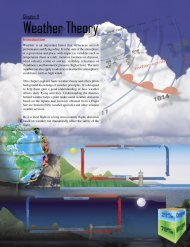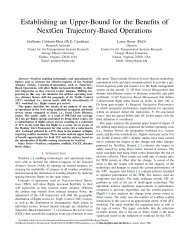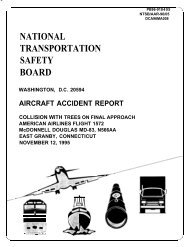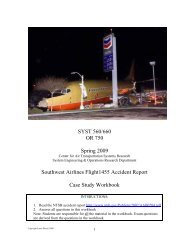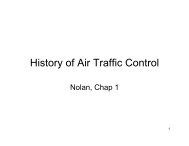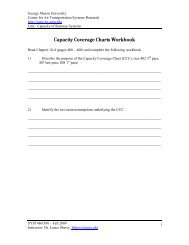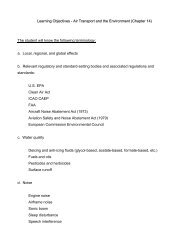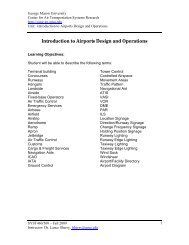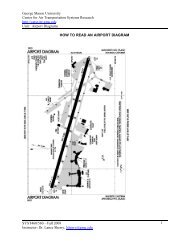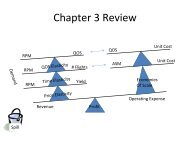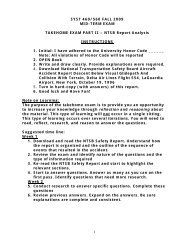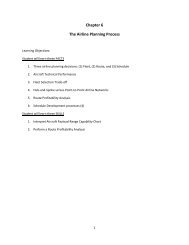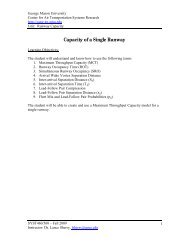Air Traffic Management Concept Baseline Definition - The Boeing ...
Air Traffic Management Concept Baseline Definition - The Boeing ...
Air Traffic Management Concept Baseline Definition - The Boeing ...
Create successful ePaper yourself
Turn your PDF publications into a flip-book with our unique Google optimized e-Paper software.
• National or international conflict discourages discretionary travel. Regions in which<br />
maximum traffic growth are expected (CIS, China, Africa) are the most volatile<br />
politically and thus more vulnerable to the effects of unrest.<br />
• Changes in diplomatic relations between or among countries may accelerate or delay<br />
implementation of more efficient routes.<br />
• Ratification of bilateral agreements (or failure to ratify) may affect international<br />
frequencies.<br />
• Different technological or procedural solutions may be adopted by different countries<br />
or blocs, resulting in escalated cost of compliance.<br />
Regulatory Risk<br />
• Communities located under flight paths or close to busy airports may take legal action<br />
to block improvements to airports.<br />
• New concepts of operations must be developed and accepted by regulatory agencies<br />
before new technologies and operational procedures can be developed.<br />
• Certification periods might be further stretched by unresponsive regulatory authorities,<br />
increasing costs and rendering solutions obsolete before implementation.<br />
Stakeholder Risk<br />
• It has been widely publicized that by the year 2015, if air transport safety standards<br />
cannot be improved there will be one hull loss globally per week. <strong>The</strong> perception of<br />
worsening safety may mean that passengers will be less eager to fly.<br />
• If system capacity cannot keep pace with demand, resulting delays may also reduce<br />
passenger demand.<br />
• Labor action is likely to have only negative effects since it usually results in increased<br />
airline costs and diminishes the traveling public’s confidence in the system.<br />
• Oil prices directly and significantly affect airline costs and fluctuations in the prices<br />
beyond those expected could affect growth. <strong>Air</strong>lines could absorb increases, reducing<br />
profits and thus delaying investment in technology, and/or increases could be passed<br />
on to passengers through increased ticket prices, reducing demand. Reduced prices<br />
could also be passed on to passengers, increasing demand.<br />
• Political unrest and forms of fundamentalism have been carried to the more stable<br />
areas of the world in the form of terrorism. <strong>The</strong> threat of terrorist action against the<br />
air transportation system (e.g. the recent revelation that GPS jammers are now<br />
available on the open market), successful attacks or even suspicions that an attack has<br />
occurred (e.g. TWA Flight 800) have an immediate effect on passenger demand which<br />
can affect airline finances for years afterward.<br />
• All users want to invest the minimum possible, at no risk, with a return on investment,<br />
within one to two years. It may not be possible to develop transitional steps which<br />
allow these aims to be met.<br />
10



